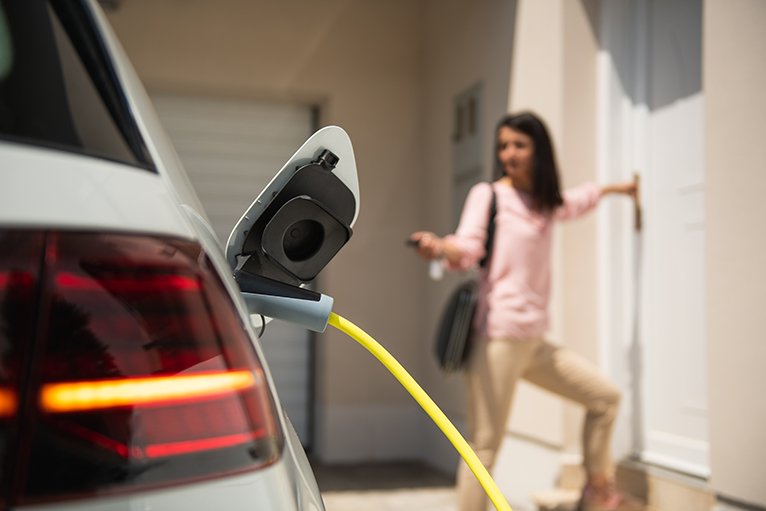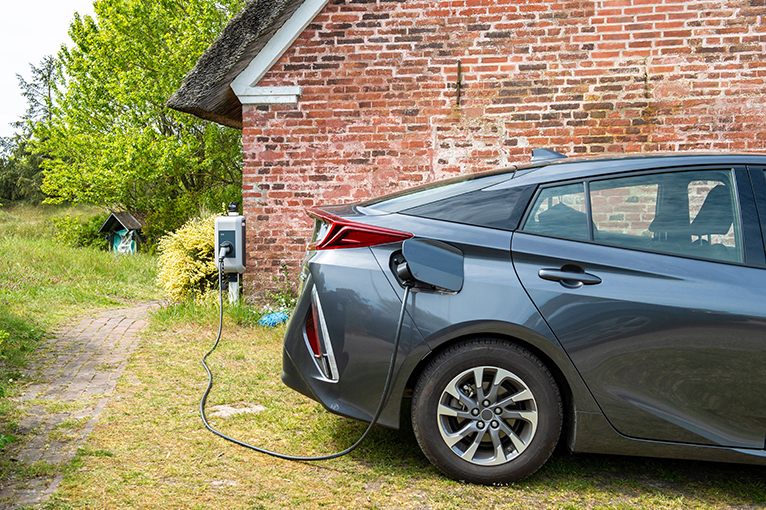What you need to know about home car charging
2021 was the year that 35% of UK homeowners made their homes more environmentally friendly, and we predict that these numbers will continue to grow in the upcoming years. Sick of your non-energy efficient petrol or diesel car? Well, the days of expensive maintenance fees and high emissions will be over soon. They could be over right now, for you, with the help of an electric car and home car charger. We found out, in the Rated People Home Improvement Trends Report 2022, that demand for electric car charging points has shot up by 80%. This means that now, more than ever, homeowners across the UK are making their motoring greener.

Thinking of joining the 45% of homeowners planning to make eco-friendly changes in 2022? An electric car may be the right choice for you. From the surge in electric car charging points, long term financial savings and outperformance of petrol-powered cars, an electric car could be this year’s best purchase. To give you an idea of the rate of expansion, in 2011 there were 1,300 public charging connectors, compared to 22,000 individual connectors now. Within the UK, you have 12,000 locations to choose from where you can top up your batteries, a number that increases daily.
So, what are the main factors to be aware of when it comes to electric cars? Studies show people are reluctant to buy electric cars because they’re afraid that charging them can be problematic.
Electric vehicle charging stations (EV chargers) supply electrical power for charging electric vehicles. The three main types of home car charging reflect the speed and voltage with which you can charge your car- slow, fast, rapid.
- Level 1: This is the usual charger supplied with most electric cars and plug-in hybrid cars. This type of charger will let you plug-in overnight for a full battery. In smaller cars a full charge can take up to eight hours.
- Level 2: If you want to double the rate of charge for your EV battery, this is the right charger for you. You can reduce your ‘fully charged’ time to just a few hours with a level 2 fast charger, which is the maximum speed charger you can have installed at home.
- Level 3: A rapid charger is the fastest way to charge your EV. This means you can add up to 100 miles of range in 35 minutes. However, these chargers are designed for commercial locations and aren’t an option for home use.
So, you might be thinking about the high up-front cost of a home car charging point, but over time your electric car ends up costing less. Your future self will thank you. A home installation typically costs around £800 but with the help of increasing government incentives and the £3,500 ‘Plug-in Grant’, the switch to electric couldn’t be easier.

Many of us are already opting to dramatically lower our impact on the environment with an electric car. Our research ranks electric car charging point installation as the second most quickly growing eco job in popularity. But don’t worry if you’re out and low on charge, there are thousands of free electric car charging points across the UK. Following the government announcement of EV charging stations as a requirement for all new homes and businesses in the UK, starting this year, recharging your electric car will soon be as easy as refuelling with petrol or diesel.

The growth of EV charging infrastructures means struggling to find a car charging station will be a thing of the past. You can’t install a home car charging point yourself, but with the help and expertise of a local qualified electrician the job can be done in a few hours. Find certified and experienced electricians on Rated People to make the change to electric, as smooth and easy as possible.
Whether you’re a homeowner looking for home improvement inspiration or a tradesperson trying to help build a greener world, check out our Home Improvement Trends Report for all our key predictions this year.




